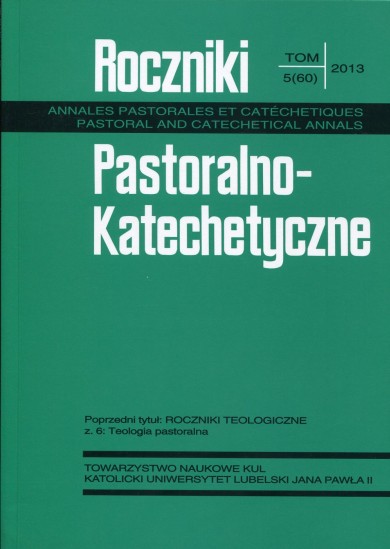Katechetyczne znaczenie postawy kreatywnej
Catechetical Importance of a Creative Attitude
Author(s): Marian ZającSubject(s): Christian Theology and Religion
Published by: Katolicki Uniwersytet Lubelski Jana Pawła II - Wydział Teologii
Keywords: creativity; improvement; religious education
Summary/Abstract: The renewal in proclaiming the Gospel can take place through renewed catechetical activities that transgress the conventional religion classroom dynamics. This is why we should be talking about a creative religion teacher, who can face the challenge of the present. The present calls for fresh perspectives on catechesis and for bidding the farewell to the prehistoric approach to religious education. Creativity is not a science but is a feature displayed by all − to a smaller or larger extent. Creativity can be nourished and developed, and the readiness to undertake unconventional action can be trained. A creative mind is not happy recreating the things that one already knows. A creative mind is critical to the status quo and strives to make it better. Preparing teachers to be creative in their catechetical efforts can employ brainstorming, the Lotus Blossom Technique or storyboarding. These techniques allow people to discuss their ideas, develop them, add new ones and to define the relations that obtain between these ideas. To become a creative religion teacher, one needs to avoid mental clichés and face bravely the dangers and challenges of their catechetical work. Creativity is endorsed by the atmosphere of trust, and the reliance on principles of justice, kindness and respect to the opinions held by others, even though their ideas seem unrealistic or futuristic. Creativity should emerge in these areas of catechetical influence where one can diagnose considerable degree of demotivation, routine, disempowerment or where religion is being marginalized or eliminated from the domain of the state's educational responsibility.
Journal: Roczniki Pastoralno-Katechetyczne
- Issue Year: 2013
- Issue No: 5 (60)
- Page Range: 99-114
- Page Count: 16

